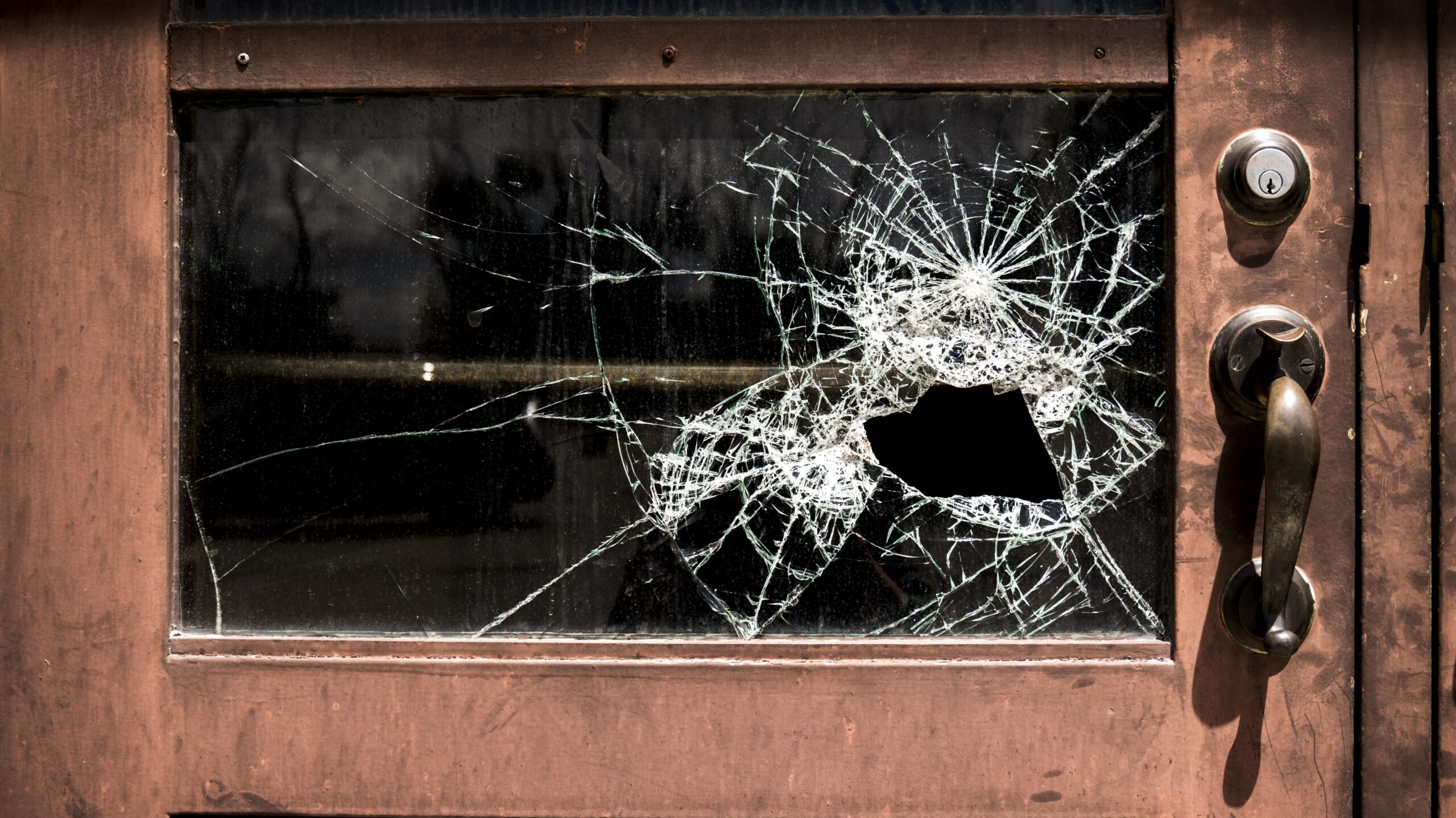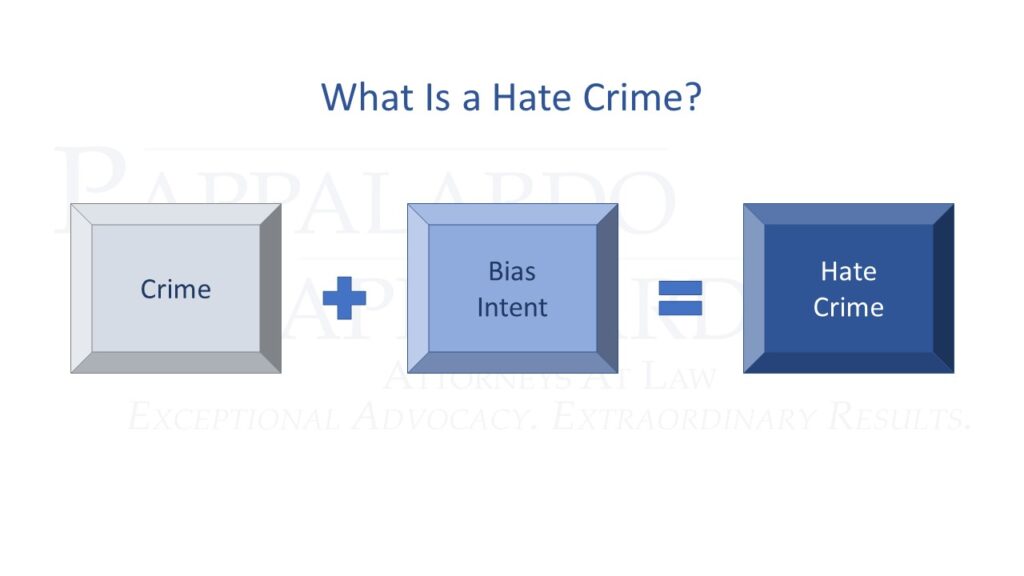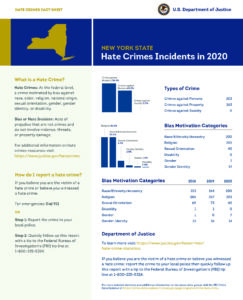Criminal Prosecution of Hate Crimes by the Federal Government
In the United States, the Department of Justice (DOJ) prosecutes federal hate crimes. This began after the enactment of the Civil Rights Act of 1968. These crimes can intimidate entire groups of people. Moreover, they can change a person’s ability to feel as if they belong in society. In this blog, we discuss what a hate crime is and the federal laws criminalizing these offenses.
What Are Hate Crimes?
A hate crime is best explained by this equation:
Because hate crimes effect not only victims but their communities, we have laws which criminalize such behavior. And these laws provide for enhanced punishment of these offenses.
In this context, the bias intent would be against people or groups with specific characteristics. Under federal law, protected classes include race, color, religion, national origin, sexual orientation, gender, gender identity, or disability. Moreover, the law covers both actual or perceived characteristics.
As to the acts criminalized, federal law covers assault, murder, arson, vandalism, sex offenses, or threats to commit such offenses. Additionally, the laws cover conspiracies or hiring others to commit the acts, even where the actual crime is never committed.
List of Federal Hate Crime Laws
- The Matthew Shepard and James Byrd, Jr. Hate Crimes Prevention Act of 2009 (18 U.S.C. § 249).
This statute criminalizes bodily injury (or an attempt using weapons) because of the victim’s race, color, religion, or national origin. Additionally, it criminalizes certain acts committed because of religion, origin, sexual orientation, gender, gender identity, or disability of any person. - Damage to Religious Property, Church Arson Prevention Act (18 U.S.C. § 247).
Under this statute, it is a federal crime to intentionally deface, damage, or destroy real property due to its religious nature, or because of the race, color, or ethnic characteristics of the people associated with the property. Additionally, it criminalizes obstruction of a person’s free exercise of religious beliefs. - Violent Interference with Federally Protected Rights (18 U.S.C. § 245).
This statute criminalizes interfering with a person who is participating in a federally protected activity because of their race, color, religion, or national origin. For example, the activity could be public education, employment, jury service, or travel. - Conspiracy Against Rights (18 U.S.C. § 241).
Pursuant to this law, it is unlawful for people to conspire to injure, threaten, or intimidate a person who is exercising any right or privilege secured to them by the Constitution or the laws of the US. - Criminal Interference with the Right to Fair Housing (42 U.S.C. § 3631).
Under this statute, it is illegal to use force to interfere with housing rights because of a person’s race, color, religion, sex, disability, familial status, or national origin.
Reporting of Hate Crimes
Hate crimes are considered under-reported and under-prosecuted. Specifically, it is estimated that there was an average of 250,000 hate crimes were committed each year between 2004 and 2015 in the US. In 2020 in New York, there were 463 federal hate crimes compiled by the FBI’s Uniform Crime Reporting Program.
To report a hate crime, if someone is in imminent danger call 911 or your local police department immediately. Alternatively, if you believe you are the victim of a hate crime or believe you witnessed a hate crime, you should report it to your local police before sending a tip to the FBI. Visit https://www.justice.gov/hatecrimes/get-help-now for more information.
References:
- U.S. Department of Justice, Hate Crimes. Available at: https://www.justice.gov/hatecrimes (last accessed Mar. 9, 2022).
- Congressional Research Service, Department of Justice’s Role in Investigating and Prosecuting Hate Crimes (updated Mar. 18, 2021). Available at: https://sgp.fas.org/crs/misc/IF11312.pdf (last accessed Mar. 9, 2022).
Image: CC0 1.0 universal creative commons public domain dedication



